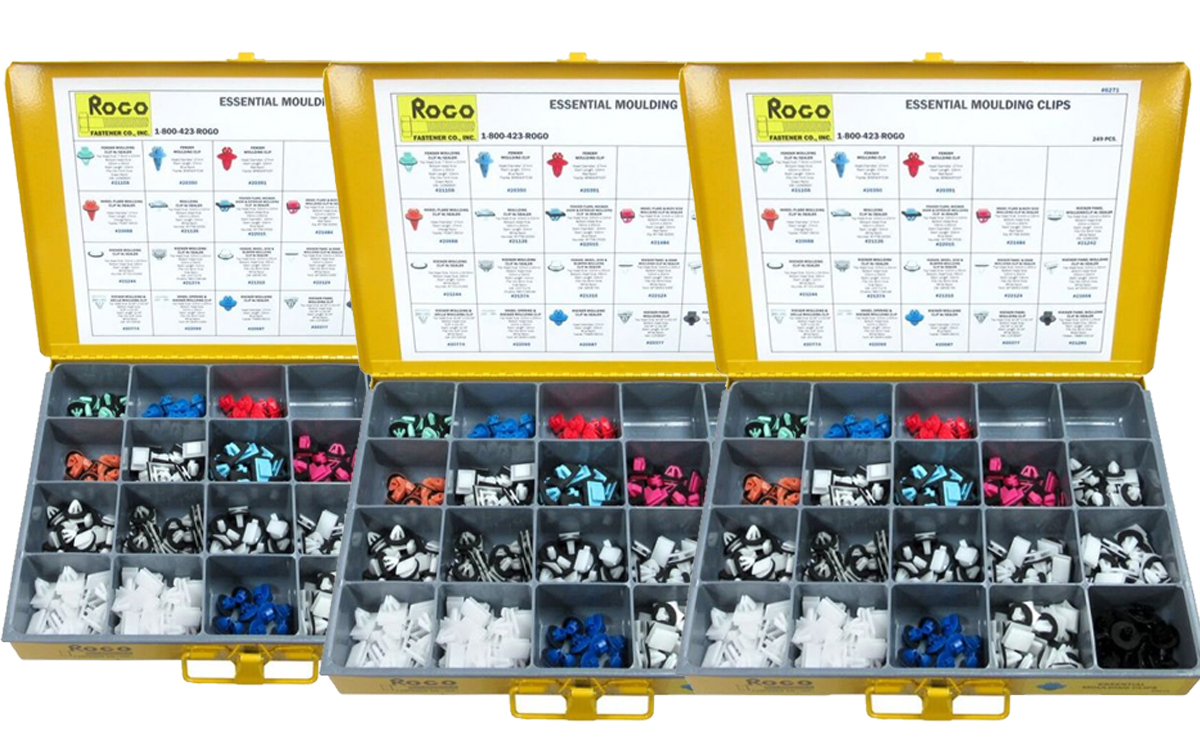Blog
3 Applications for Plastic Automotive Fasteners
Fasteners, the small yet essential pieces that hold automotive parts together, come in a huge variety of shapes and materials. There is a fastener for every job, and while most are metallic, plastic fasteners are gaining popularity because of their lightweight and resistant characteristics.

The Advantages of Plastic Automotive Fasteners
Plastic has been a part of car assemblies for many years, but over time it has developed into an inexpensive, resistant material that mechanics can use in a wide range of automotive applications. Today’s plastic fasteners can be as durable and strong as some metal fasteners and work well when used correctly.
One popular material for car fasteners is FR-4/G10, a fire-resistant plastic that includes epoxy resin and fiberglass for strength.
Another chemical-resistant plastic often used is polyarylamide, which is rigid thanks to incorporated glass fibers. Another often-used plastic is TPU, or thermoplastics polyurethane, which resists UV rays, moisture, and some chemicals.
You can also find PIV, polyamide, polyethylene, polypropylene, and polystyrene parts.
There is a wide range of these plastic fasteners and materials used in many different ways in the automotive industry. Here are three popular applications for plastic parts.
1. Components for Car Interiors
One popular use of plastic fasteners is for car interiors. These plastic parts help save weight and protect against rustand seizing.
Carpet retainers can secure carpet to both soft and hard trims, are easy to assemble and disassemble, and some come sealed to keep out dirt and water.
Other useful plastic automotive fasteners are clips. Professionals use clips to install insulation mats and to fasten the wheel arch. Most are gas and waterproof, corrosion-free, and allow toolless assembly. Snap Fit clips attach the trim to the dash or doors. There are also plastic nuts for lamp mounting, heat shields, and accelerator mounting.
2. Pipe Clamps and Saddles
Plastic hose clamps don’t require extra tools to install and are secure. These plastic clamps don’t wear down or break rubber or other soft materials. There are anti-vibration versions, as well. Plastic clamps come as molded, complete parts, or in a roll-like metal hose clamp.
You can also use plastic saddles and routing clamps for pipes and hoses in automotive work.
3. Bolts, Screws, Pins, and Self-Clinching Fasteners
There are a variety of plastic bolts and screws available suitable for automotive applications. Self-clinching fasteners, for example, can join sheet parts. You can purchase self-clinching studs, nuts, pins, and blinds.
Blind-threaded inserts are best for extrusions and tubing, whereas other self-clinching fasteners are better for stacking panels and components and mounting. Pins, like cotter pins and linchpins, can also be plastic.
Plastic washers are also useful anywhere you can use metal washers, to prevent leakage and friction, for example, on an axle bearing.
Choosing Plastic Automotive Fasteners
The best way to choose the right plastic fastener for the job is to consult with the experts. The material of the fastener must match the temperature and conditions of the application, or it will not hold up. For quality parts, or for help choosing the right part for your particular need, just reach out to us here at Rogo Fastener.
Sources:
- https://www.stanleyengineeredfastening.com/en/Fasteners/Plastic-Components/Pins-and-Grommets
- https://www.nifcousa.com/product/fasteners/
- https://www.rapiddirect.com/blog/types-of-automotive-fasteners/
- https://auto-fasteners.com/products/
- https://rogofastener.com/page/contact-us.html
- https://rogofastener.com/shop/fuel-line-retainer-clip.html
- https://en.wikipedia.org/wiki/Polyamide
- https://www.curbellplastics.com/materials/plastics/g10-fr-4-glass-epoxy/
